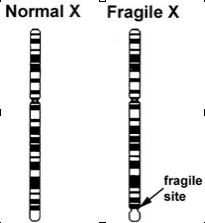Beginning the RME module, it was suggested that we go as a group on a trip to the Dundee Mosque to the Open Doors day. I was very curious going in, as I had never been in a Mosque before. I would have been the first to admit to knowing only a little about Islam, so I had absolutely no idea what to expect. What first struck me when we went in was how welcoming and pleasant all of the volunteers were. Of course I was not expecting anything different, but I felt that it was great how open they were, and how willing they were to share their own thoughts and experiences of their religion. I felt very welcome, and it was very interesting to see the religion! I feel more confident teaching Islam in a class, and I would definitely take a class there on a trip, as it was a great experience which I would like to share with any children I work with.
To learn more about Islam, I watched the following video. It follows the lives of two young Muslims: Sara and Kaisan, and gives them the opportunity to explain and demonstrate what their religion means to them and their families. I felt that it was a great way of showing children what it mean to be a muslim in the UK. I believe this it is a great resource to use with children as it explains Islam in practice, and from the point of view of a child, which is very important.
It is quite different to what some children may have seen in the media about the religion and its practices. A simple google search of “BBC News Islam” had the following top two results:
“Islamic State conflict – BBC News”
“Islamic State group: The full story – BBC News”
And other versions of this search all brought up similar results, pages and pages about extremism, conflict, and many other negative images. On a personal level I struggled with this, as I saw no similarities at all to the real Muslims I met at the Mosque. The people were so pleasant, kind and open to us, that I found it uncomfortable to read the pages that my web search brought up. It seems wrong to me that these are portrayals of the religion that children can see. I considered the representations of Islam I have seen myself recently and came up with two very different ones which portray it in very different ways.
One was a recent television drama called ‘Our Girl’, set in Kenya, where a young female army medic is kidnapped by an extremist group and then rescued by her friends. I do not feel I can say whether or not the storyline was realistic, however it did make me think about the way that Islam can be shown in a negative and even scary light. Alternatively, the second was ‘My Jihad’, a series of ‘shorts’ – four 15 minute episodes of a drama about Nazir and Fahmida, two young British muslims, who meet by chance and decide to marry. The story follows them as they attempt to navigate their way though their relationship while maintaining a strong devotion to their religion. To me, this show was a far more realistic and fair representation of Islam. While I accept that the two shows are very different – being set within two very situations; in different countries; and of course with very different characters, I believe that they evoke different reactions in the audiences, and the portrayal of Islam in a negative light has contributed to there being a sense of unease around the religion, which my own trip to the Mosque simply proved was completely wrong.
Want to watch these two shows for yourself?
My Jihad: http://www.bbc.co.uk/iplayer/episode/p01ssrp2/my-jihad-1-a-bus-a-burka
Our Girl: http://www.bbc.co.uk/programmes/p0452t2n
- Practicing writing in Arabic
- Showing off their Arabic writing
- Showing off their henna
- On the way in…
















